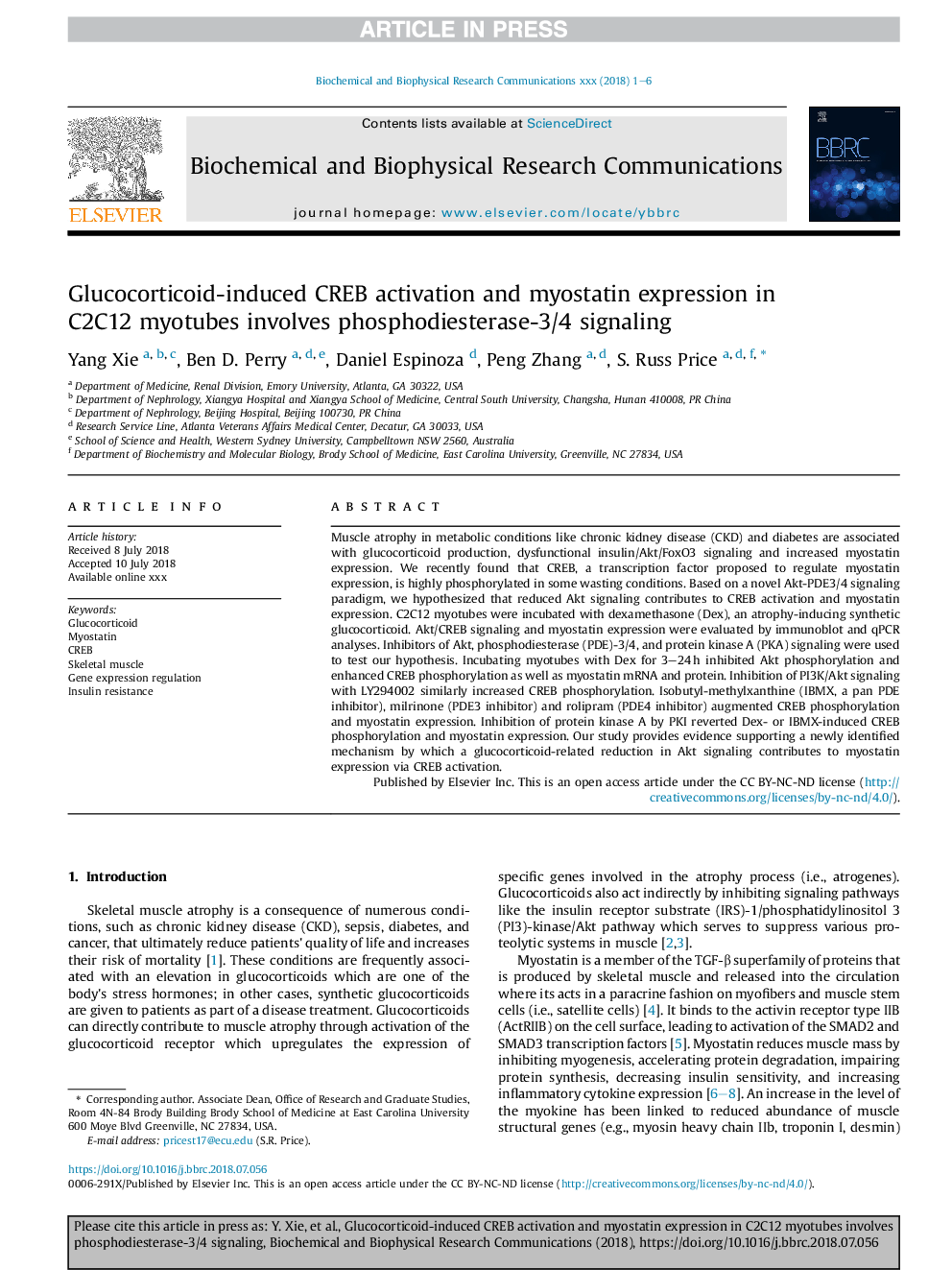| Article ID | Journal | Published Year | Pages | File Type |
|---|---|---|---|---|
| 8955970 | Biochemical and Biophysical Research Communications | 2018 | 6 Pages |
Abstract
Muscle atrophy in metabolic conditions like chronic kidney disease (CKD) and diabetes are associated with glucocorticoid production, dysfunctional insulin/Akt/FoxO3 signaling and increased myostatin expression. We recently found that CREB, a transcription factor proposed to regulate myostatin expression, is highly phosphorylated in some wasting conditions. Based on a novel Akt-PDE3/4 signaling paradigm, we hypothesized that reduced Akt signaling contributes to CREB activation and myostatin expression. C2C12 myotubes were incubated with dexamethasone (Dex), an atrophy-inducing synthetic glucocorticoid. Akt/CREB signaling and myostatin expression were evaluated by immunoblot and qPCR analyses. Inhibitors of Akt, phosphodiesterase (PDE)-3/4, and protein kinase A (PKA) signaling were used to test our hypothesis. Incubating myotubes with Dex for 3-24â¯h inhibited Akt phosphorylation and enhanced CREB phosphorylation as well as myostatin mRNA and protein. Inhibition of PI3K/Akt signaling with LY294002 similarly increased CREB phosphorylation. Isobutyl-methylxanthine (IBMX, a pan PDE inhibitor), milrinone (PDE3 inhibitor) and rolipram (PDE4 inhibitor) augmented CREB phosphorylation and myostatin expression. Inhibition of protein kinase A by PKI reverted Dex- or IBMX-induced CREB phosphorylation and myostatin expression. Our study provides evidence supporting a newly identified mechanism by which a glucocorticoid-related reduction in Akt signaling contributes to myostatin expression via CREB activation.
Related Topics
Life Sciences
Biochemistry, Genetics and Molecular Biology
Biochemistry
Authors
Yang Xie, Ben D. Perry, Daniel Espinoza, Peng Zhang, S. Russ Price,
